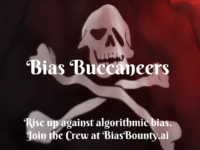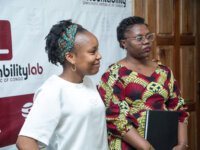Gov Buys Innovation is a modern version of public procurement, axed on the active search for innovative solutions available on the market. By reconsidering the way of interaction between the public and the private sector, we aspire to transform public entities into pioneers for new creative ideas, modernising countries in the benefit of private companies and all citizens.
Innovation Tag: Challenges and Awards
Project Sampoorna, successfully implemented in Bongaigaon district of Assam, is a model that can be easily implemented anywhere in reducing child malnutrition. This project has resulted in reduction of malnutrition in children by 95.6 % within 1 year in Bongaigaon district using very less economic investment. It is an initiative for tackling SAM and MAM by using Weight for Height growth chart & Empowering Mothers by employing Buddy Mother concept along with community participation.
Officina is a lab for innovation in the public sector whose main objective is to catalyse the energy of young talents by offering them a transformative training programme. Officina was developed to address a triple urgency: future decision makers not perceiving the public sector as an attractive workplace; the public sector having high average age workforce and lack of innovative approaches; society at large needing a more modern and appealing public sector in this key historical moment.
Case Study
Exploration Projects – Promotion and development of disruptive and unconventional research in…

The National Agency of Research and Development has piloted a new program, called ‘Exploration Projects’, that allows funding of disruptive, unconventional, and high novelty science and research in all areas of knowledge. The program goals are to promote this type of science, propose the exploration of new and unconventional perspectives, methodologies, theories, and technologies, with the potential for significant reward to its discipline, field of knowledge, as well as society.
Impact Canada Challenges have incentivized innovative solutions in the areas of climate action, housing, food, and health. A quasi-experimental impact assessment approach uses tax data (available in most countries) to assess the effectiveness of Challenges by profiling Challenge participants and comparing business performance indicators of Challenge participants vs. non-participants. Requiring only the participant’s business number, this is a no burden, comparative, long-term measurement plan.
Bias Buccaneers is the first non-profit algorithmic bias bounty organization. We organize competitions to engage a broad global community in identifying and fixing ethical problems in the algorithms all companies use. The long term vision of Bias Buccaneers is to create global expertise, standards, and verifiable talent in a nascent, but rapidly growing, field.
LAB Justice is the first executive education program, tailor-made for the Justice sector. With a customized learning journey, it was designed to help people working for Justice bodies address the challenges faced to deliver more efficient and people-centred services. Focused on three main areas – strategic management, digital transition and leadership in a context of change –, it aims to ensure the necessary skills to implement reform measures, namely those under the Recovery and Resilience…
The Future Tech Challenge (FTC) is a pilot initiative led by DPER to connect and collaborate across the wider ecosystem, and engage in transformative innovation by experimenting with, and applying new technology to address pressing public sector problems and opportunities that deliver improved services to the public. Drive innovation using emerging technology, enhance collaboration, meet National strategic priorities, generate knowledge & learnings and develop prototyped solutions.
In an increasingly digital world, Participa.gov represents our vision for civic participation in political decision-making processes. Participa.gov is the Portuguese Public Administration's centralized, cross-cutting platform for facilitating participatory processes at all levels of government. It employs cutting-edge technology to ensure that citizens can actively participate in policy decision-making via secure and transparent mechanisms that foster trust.
The Accountability Incubator is a creative peer learning program for young civic activists and change-makers who want to fight corruption and build accountability. It was developed to provide long-term support, networks and skills to people who are often overlooked by or left out of traditional civil society programs. It is innovative in that it uses creative tools, a long-term approach and the very latest thinking to shape governance globally.





